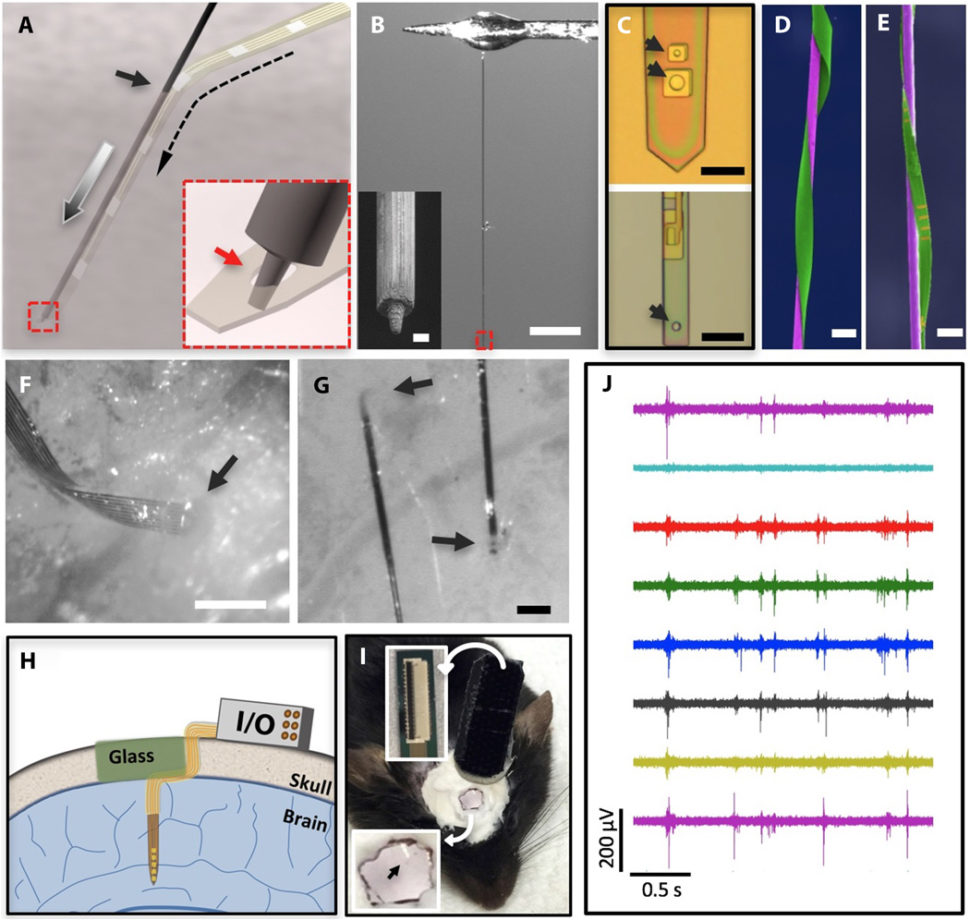New technology from neurological researchers in Texas gives promise for the integration of neural probes into the brain without having many of the current complications.With science making it easier for humans and machines to become one, how will we face new challenges that arise?
University of Texas researchers created a new flexible brain probe.Click To TweetFlexible Neural Probes
Researchers from the University of Texas have invented flexible neural probes that can be seamlessly inserted into the brain to record neural activity.
Currently, probes are made of a firmer material that causes scarring, rejections, and interruption of neurotransmitters. This new, thinner and more malleable probe, which is still in the experimental and animal testing phases, has less of a chance of rejection because its consistency is similar to that of brain tissue.
The new probes have the potential to transform the biomedical industry by helping researchers better understand neurological disorders like Alzheimer’s and Parkinson’s disease.
The probes will also be of use studies linked to better understanding computing. As the brain becomes more and more linked to how we study the mechanics of computers, striving for technology that can replicate our most complex organ, it will be interesting to see how biomedical and computing fields will intersect in the future.
The Future is Now
With the prospect of a singularity seeming less like a sci-fi warning and more like an inevitable means for human advancement, the moral, practical, and logical complications of seamless integration of technology in the human body will begin to raise more ethical questions amongst researchers.
As technology continues to merge and interact with humans on more advanced levels, personal security is becoming more of a commodity that people are willing to sacrifice for convenience. If neural probes become just another IoT device, how would we protect ourselves from hacks? How do we make sure that our most personal information remains secure? The answer might live somewhere in the cloud.
Today, we are already on our way to having live streaming contact lenses that eerily recall the “The Entire History of You” episode of Black Mirror which (spoiler alert!) does not end well for anyone.
The collective fear of the integration of tech with the human body has its roots in biblical texts and the romantic art that produced Mary Shelly‘s Frankenstein. There has always been a very real fear of what it means to “play god” or interfere too much with natural processes. The truth is; however, that as long as we are human, life is going to be full of terrifying, existential dread, no matter how rudimentary or technologically advanced our society happens to be.
And so with that in mind I say, bring on the malleable probes!
The Beginning of the End?
What do you think, Edgy Labs readers? Would you feel safe having potentially useful technology implanted into your brain?



















Comments (0)
Most Recent